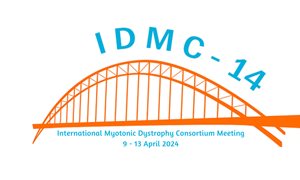
Myotonic dystrophy type 1 is one of the most common hereditary diseases but is often recognized late. The biennial international meeting brings together everyone active in the world of myotonic dystrophy. During this meeting, which takes place this year in Nijmegen, new insights, research results, and treatments are shared. During the concluding family day, patients and their loved ones are briefed.
The symptoms of myotonic dystrophy (MD) vary from patient to patient and from generation to generation, and often worsen with each generation. The more knowledge of these differences, and the earlier a diagnosis is made, the better patients and their family members can be helped.
Hereditary muscle disease with many hidden symptoms
Elderly people often develop cataracts but may have shown symptoms earlier in their lives that were attributed to other diseases, such as gastrointestinal issues and cardiovascular diseases. In adults, the disease is characterized by cramped muscles, for example, fingers that remain cramped after opening a jar (myotonia), and increasing muscle weakness (dystrophy). The heart, lungs, gastrointestinal tract, eyes, and brain can also be affected. This can manifest in a wide range of symptoms such as arrhythmias, reduced breathing and coughing strength, gastrointestinal complaints, cataracts at a young age (<50 years), extreme fatigue, reduced initiative, and decreased disease insight.
Children often struggle with learning and/or behavioral problems, gastrointestinal complaints, and fatigue, which often does not immediately prompt healthcare providers to think of a muscle disease; they may appear disinterested due to little initiative. Newborns often have extreme muscle weakness, making it difficult for them to breathe and feed. They usually develop slower than their peers.
14th International Myotonic Dystrophy Consortium Meeting (IDMC-14)
Research is therefore of great importance, and during the fourteenth International Myotonic Dystrophy Consortium Meeting (IDMC-14), 375 experts from around the world come together to share their latest developments and results. Among them are scientists, clinicians, caregivers, patient representatives, and professionals from the pharmaceutical industry. Nijmegen scientists are currently investigating medications targeting the cause of the condition rather than just the symptoms. They will share the details of their progress during the congress (April 9-13).
Research: new and old medication
During the congress, promising results from clinical research with innovative medications targeting the hereditary defect at its root are presented. The approval of these often expensive medications will still take several years, so there is also attention given to the use of existing medications that can alleviate certain symptoms. Examples include the anti-diabetes medication metformin, which can improve muscle strength, and tideglusib, a medication originally developed for Alzheimer's and now seems to alleviate behavioral problems in children and (young) adults.
Scientists from Radboudumc lead the SIMPATHIC project, which scales up research into the reuse of old medications. They use a new technology to test existing drugs in patients with various conditions, such as MD. All the researchers need is a small blood sample or a small piece of the patient's skin. The stem cells from these are cultured into nerve cells. The researchers then test how these cells respond to various existing medication. If there is a positive effect, a study is immediately initiated with patients with the same symptoms.
This method can lead to accelerated deployment of medications for (individual) patients with rare conditions for whom there are few or no available treatment options at the moment. And because existing medications have already been tested in humans, animal research is often not necessary. This greatly speeds up the deployment of medications for new applications and reduces research costs. (See for more on this research hier).
Importance of recognition
The complexity of MD and the variation in symptoms make it difficult to recognize the disease. Even healthcare professionals often do not recognize the symptoms because they often see them in isolation. This means patients do the right specialist at a very late stage, while an early diagnosis is important for initiating treatment, appropriate care, and guidance quickly. Additionally, it is now possible to prevent the condition from being passed on to the next generation.
Family drama
Once MD is diagnosed, the entire family can be tested for the specific genetic mutation on chromosome 19. This means that the mutation can also be detected in other family members, ranging from parents, siblings, to distant cousins. They too can be carriers of the gene. Thus, MD can suddenly manifest itself in an entire family. It also happens that the diagnosis is known in a family branch but not shared, often out of a form of shame.
Feelings of guilt toward the next generation are often felt when it turns out that someone is a 'carrier' at a later age. For example, a grandfather was found to have a milder form, but this was only detected after the birth of his severely affected grandchild. The grandchild showed extremely weak muscles after birth, prompting further investigation, leading to the discovery of MD.
Family Day
On Saturday, April 13, the international Meeting will conclude with a Family Day for Dutch patients and their families. This day is organized by the patient association Spierziekten Nederland in collaboration with the Prinses Beatrix Spierfonds, MD Nederland, the Expertisecentrum MD (a collaboration of Radboudumc and Maastricht UMC+) and the Stichting Spieren voor Spieren (Muscles for Muscles Foundation).
Program and registration
More information, registration, and the program for adults and children are available here (Dutch): https://www.spierziekten.nl/spieracademie/. More information about the IDMC-14 meeting is availabe found here: IDMC-14 2024 - Home (idmc14.org) (English).
-
Want to know more about these subjects? Click on the buttons below for more news.






